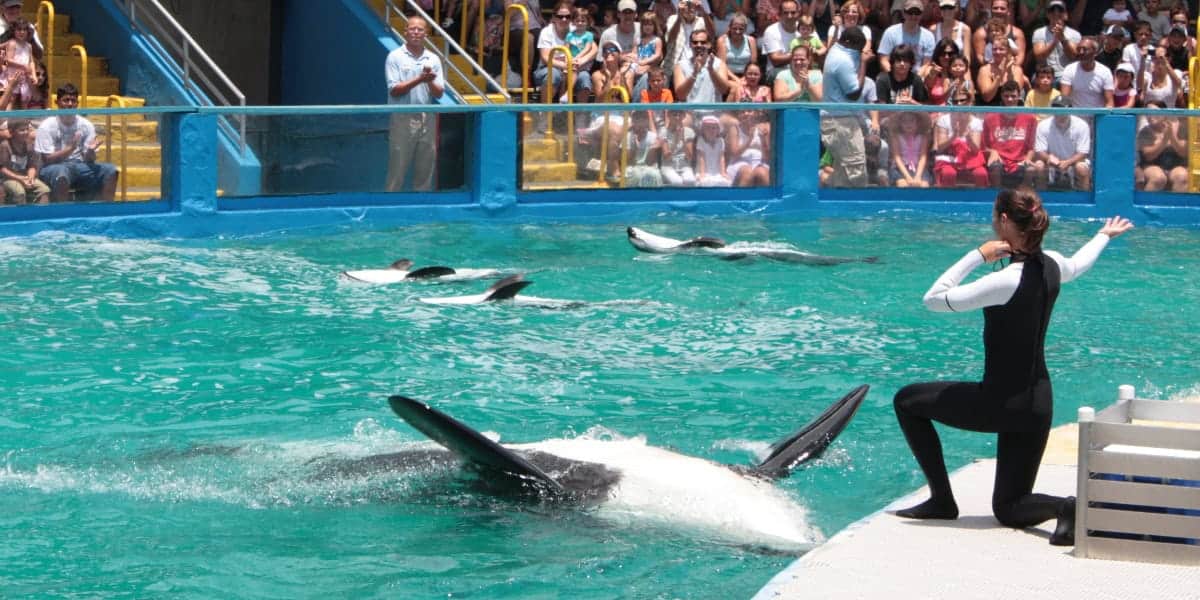Court Decision on Florida Theme Park Sparks Hope for Continued Operations
A recent decision by a Miami-Dade County judge has brought a moment of relief for the Miami Seaquarium, denying the county’s request for immediate eviction.
The case has been fraught with tension, focused on missed rent payments and animal welfare violations previously highlighted in government inspections.

As per CBS News, while a Miami-Dade County judge acknowledged the late rent payments, they deemed that they did not warrant an immediate eviction, instead setting the wheels in motion for mediation to further address the dispute, scheduled for October 21.
Why Is Miami Seaquarium Being Evicted?
The backdrop to the legal confrontation paints a picture of escalating tensions between the Miami Seaquarium and Miami-Dade County.
Over the years, the Florida theme park has faced scathing reports from the U.S. Department of Agriculture, uncovering numerous animal care violations that have raised alarms for animal rights activists and community watchdogs alike, such as a dolphin found with a bolt in its throat and a sea lion whose surgery was delayed for so long that he refused to eat.

In 2023, the county issued an eviction notice to the Seaquarium after the facility failed to rectify these financial shortcomings. The lease, initially set to continue until 2044, faced a dramatic turning point with this legal battle, drawing attention to the Seaquarium’s management and operational practices.
What Are The Latest Updates?
The Seaquarium’s legal team claims that Miami-Dade County had obstructed their operations by impeding access to necessary permits for facility improvements. This assertion was grounded in frustrations over the county’s failure to allow renovations that could elevate both the animal care standards and overall visitor experience.
In contrast, the county’s legal representatives were quick to point out that the late rent payments—one incident of which was attributed to a bank holiday in Mexico—were clear violations of their contract. They insisted that regardless of the circumstances, accountability for punctual payments is a fundamental aspect of any lease agreement.

Additionally, both parties have grappled over the crucial issue of animal care standards. The Seaquarium’s Executive Director, Edwin Gonzalez, also defended its reputation for animal welfare, claiming that it has remedied many of its prior issues. “We’ve had two consecutive USDA audits,” he said. “Perfect audits. Which means nothing was wrong. The USDA just sent us the renewal of our license.”
Future Implications for the Seaquarium
Successful mediation could pave the way for a sustainable operational framework that meets both the county’s requirements and the Seaquarium’s need to continue functioning as a marine life attraction. However, failure to resolve these issues could result in further legal actions, impacting the future of the nearly 1,000 animals in their care and the 148 jobs tied to the facility.
Currently, the Seaquarium—which was previously home to the beloved killer whale Lolita (AKA Tokitae) before her death last summer, just months after the park vowed to free her—has adjusted its operational hours, now open Wednesday through Sunday. This reduction has been a direct response to the ongoing legal strife and financial uncertainties. The continuous adaptation of their operational model reflects a measured approach to maintaining engagement with the community while complying with evolving legal expectations.
What do you think of Miami Seaquarium’s legal battles?




